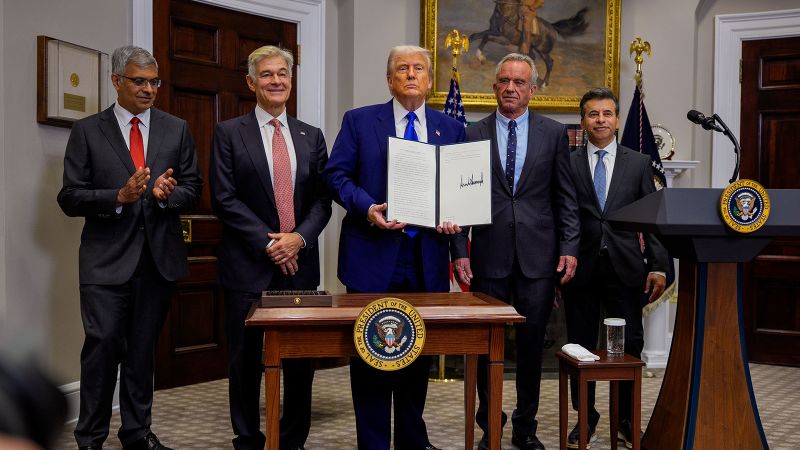Kennedy Jr. Signals Bipartisan Approach to Lowering US Drug Prices: Collaboration with Democrats on the Table

In a significant development for US healthcare policy, Robert F. Kennedy Jr., the nation's health secretary, indicated a willingness to collaborate with Democrats to tackle the persistent issue of high prescription drug prices. The statement came during a Wednesday hearing before the Senate Committee on Health, Education, Labor & Pensions, where Kennedy Jr. addressed concerns regarding affordability and accessibility of vital medications.
The hearing focused heavily on strategies to curb rising drug costs, a long-standing challenge for American families and a key political issue. Kennedy Jr.'s acknowledgment of a potential partnership with Democrats marks a departure from previous approaches and suggests a possible shift in policy direction. Historically, efforts to lower drug prices have been met with partisan gridlock, hindering substantial progress.
Addressing Key Concerns
Kennedy Jr. emphasized his commitment to finding common ground and working across the aisle to achieve meaningful results. He acknowledged the urgency of the situation, stating that high drug prices disproportionately impact vulnerable populations and create barriers to essential healthcare. While specifics of potential collaborative efforts remain to be seen, Kennedy Jr.'s openness to dialogue is viewed by many as a positive step.
The Political Landscape
The Biden administration has made lowering prescription drug costs a central pillar of its agenda. The Inflation Reduction Act, passed in 2022, included provisions allowing Medicare to negotiate prices for certain drugs, a landmark achievement. However, legal challenges and industry lobbying have sought to undermine these efforts. Kennedy Jr.'s willingness to engage with Democrats could provide a crucial boost to these ongoing initiatives.
Potential Areas of Collaboration
Several areas offer potential for bipartisan collaboration. These include:
- Promoting Biosimilars and Generics: Increasing the availability and uptake of lower-cost alternatives to brand-name drugs.
- Transparency in Pricing: Requiring pharmaceutical companies to be more transparent about how they set drug prices.
- Addressing Patent Evergreening: Limiting the practice of extending patents on existing drugs through minor modifications, which can delay the entry of generics.
- Supporting Research and Development: Finding ways to incentivize innovation while ensuring affordability.
Challenges Ahead
Despite Kennedy Jr.'s optimistic stance, significant challenges remain. The pharmaceutical industry is a powerful lobby, and resistance to price controls is expected. Reaching a consensus on specific policy changes will require careful negotiation and compromise.
A New Era of Healthcare Policy?
Kennedy Jr.'s willingness to work with Democrats could signal a new era of bipartisan cooperation on healthcare policy. If successful, this collaborative approach could lead to tangible benefits for American patients and families, making essential medications more affordable and accessible. The coming months will be crucial in determining whether this potential can be realized.






